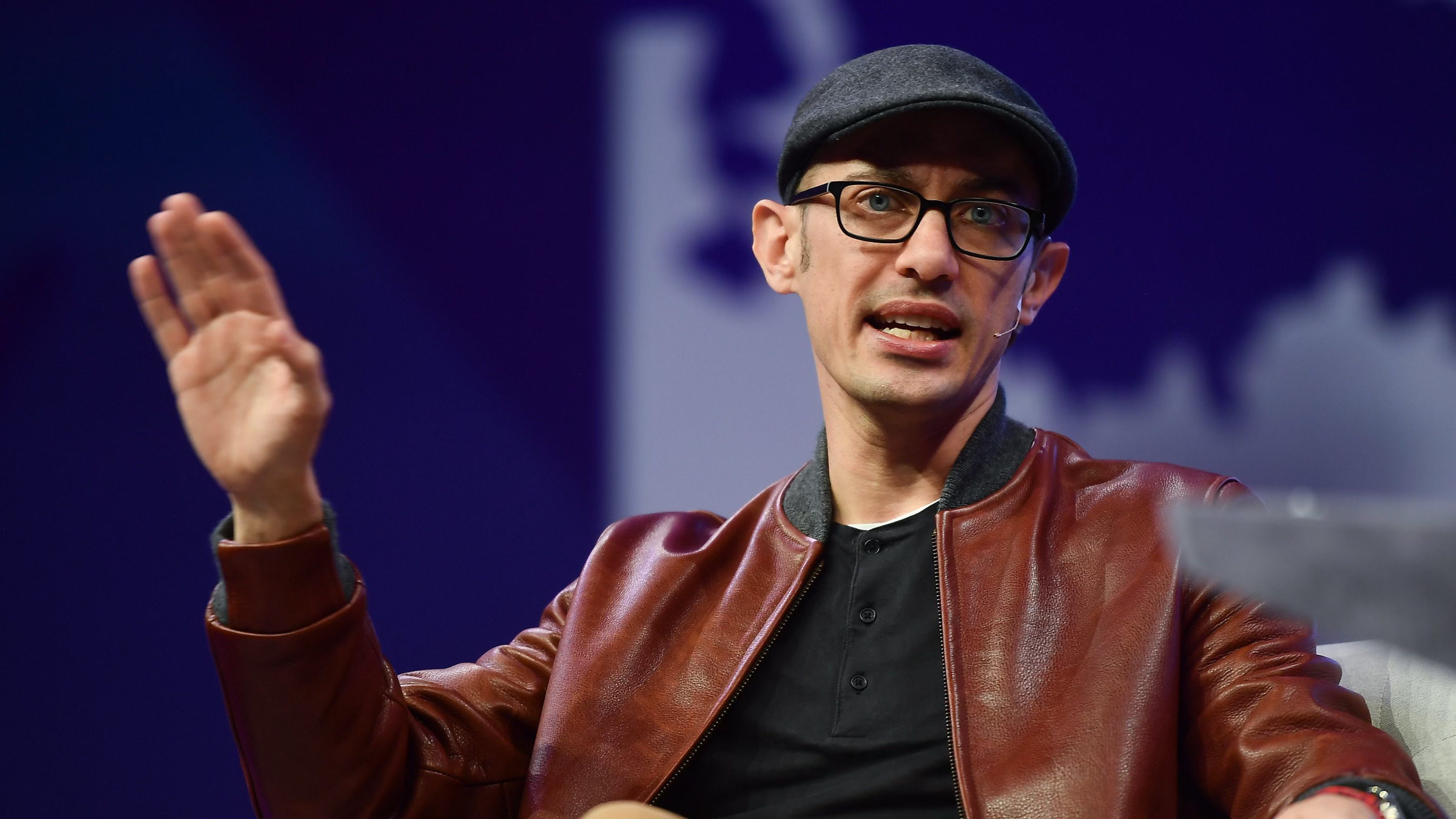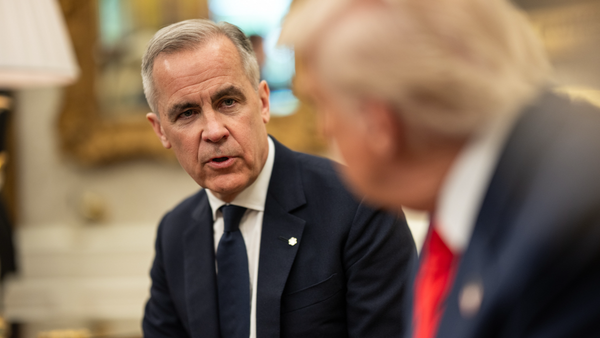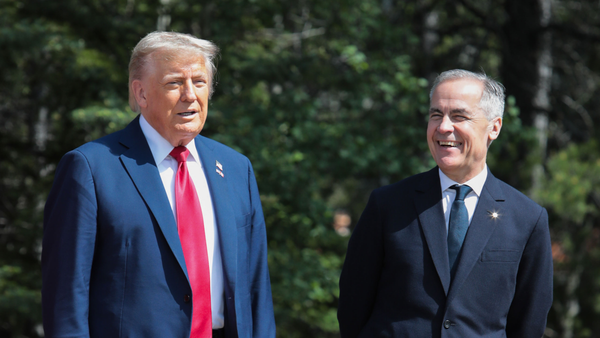Canada’s election is winding to its close with only 11 days left until voting day, and tonight party leaders meet for a second time — this time in English — to debate some of the biggest issues facing the country.
The biggest story from last night’s French debate was less about the debate itself than what happened afterward: at a series of individual press conferences, the leaders were pelted with questions from obscure extreme right-wing media groups pushing anti-trans narratives and residential school denialism. They don’t typically have access to such spaces, but after one group put legal pressure on the Leaders’ Debates Commission, they were allowed in. It was a shameful display.
But for me it also brought to mind another way right-wing narratives have been spreading in Canada, and that is, of course, thanks to tech executives. After many declared their support for Conservative leader Pierre Poilievre when he had a seemingly unsurmountable lead in the polls, they became less vocal during the campaign itself as the Liberal Party under Mark Carney rapidly reversed its fortunes and seems poised to form a majority government.

That isn’t to say they’ve stayed silent. The Twitter feeds of Shopify’s executives have featured occasional endorsements of Poilievre and his policy positions, particularly after a recent interview on Shane Parrish’s podcast. Parrish has called for a Canadian DOGE and wears a Build Canada t-shirt in the interview, which is a group pushing pro-tech and often right-wing policy positions to influence the next government.
The Council of Canadian Innovators, a tech lobby group, released an open letter calling for a “real debate” on overhauling the economy and prioritizing procurement on Canadian companies (see: their own) by tapping into Trump-fueled nationalism. Meanwhile, Shopify CEO Tobi Lütke has been promoting healthcare privatization in Alberta, cracking down on immigration, cutting government spending, and said Poilievre would “make Canada Laffer curve optimal” — a bullshit theory used by right-wingers to justify large tax cuts by claiming they’ll actually allow the government to raise more revenue, not less.
But there’s a good reason why tech leaders have pulled back from unabashedly backing Poilievre and the Conservatives. Not only is he poised to lose the election to the Liberals, but Carney likely isn’t such a bad partner for the agenda they want to see implemented. I plan to expand on this soon, but Carney has a long history of supporting the tech industry, including sitting on the board of Stripe, and has been talking a lot about using technology and AI to improve efficiency in the public service. One of his first actions as prime minister was to cut a planned increase to the inclusion rate for the capital gains tax that had infuriated Canada’s tech industry.
Whatever happens after April 28, Canadians will need to be on guard against increasingly radicalized tech leaders trying to shape government policy. Find a piece below that was first published by the Toronto Star last month, digging into the turn we’ve seen among Canada’s tech executives.
In May 2024, Conservative party leader Pierre Poilievre lambasted corporate lobbyists in a speech to the Greater Vancouver Chamber of Commerce. He called the profession “utterly useless” and said he had a message for corporate Canada: “if you want any of your policy agenda pushed forward, you’re going to have to convince not just me but the people of Canada that it is good for them.”
It didn’t matter that Poilievre was continuing to host pricey fundraisers filled with the very people he was supposedly telling to get lost. His speech was part of an attempted rebrand as a man of the people, but it had an important subtext: If corporate leaders wanted to get in the good books of the man who looked likely to be the next prime minister, they needed to help sell a conservative agenda to the public.
Among those who got the message were Canada’s tech leaders. As Silicon Valley has aligned with the MAGA movement in America, north of the border, the country’s tech world appears to be forming a new political alliance of its own.
Last year, executives across the tech industry had begun speaking out against the Liberals’ planned changes to the capital gains inclusion rate — effectively ensuring that 66% of capital gains made above $250,000 would be subject to taxation, instead of only half being taxed. It was a policy that would have affected a mere 0.13% of the highest earners, according to government projections.
The policy has since been killed by new prime minister Mark Carney. But the root of the objection was clear: Tech executives receive much of their compensation in stock, and they did not want to pay higher taxes.
One of the most vocal opponents of the policy was Shopify president Harley Finkelstein, who said it was “not a wealth tax, [but] a tax on innovation and risk taking.” The company’s CEO Tobias Lütke backed him up, arguing the government was determined to “leave no stone unturned” in deterring domestic innovation. The industry’s lobby group got to work on trying to oppose the change.
Shopify is one of the largest publicly traded companies in Canada, and its leadership are no strangers to backing right-wing causes. Lütke has long presented Shopify as a “free speech” platform, meaning it refused to take down stores selling hate speech merchandise and Nazi memorabilia. Its Chief Operating Officer Kaz Nejatian co-founded and funded a hard right-wing media group called True North with his wife Candace Malcolm. Last month, Malcolm launched an anti-trans attack on prime minister Mark Carney, accusing him of being a bad father for supporting his non-binary child who sought gender-affirming care. The capital gains fight may be over, but it was a sign that not only are Shopify’s executives becoming more vocal and politically active, so are many across the tech industry.
In recent months, Canadians have understandably been focused on developments south of the border: watching Donald Trump return to power, along with his alliance with Silicon Valley billionaires like Elon Musk who is leading a campaign to gut government programs through the Department of Government Efficiency, or DOGE. What has received less attention is how a growing coterie of Canada’s tech elite is pushing for a similar playbook at home: one that not only serves their own interests, but seeks a right-wing overhaul of the Canadian government.
In February, a group of Canadian tech CEOs and executives launched an organization called Build Canada to advocate for a series of policies they felt would improve the country. Among them are restrictions on refugees, laying off over 100,000 federal government employees, and rolling out artificial intelligence in public services. But they didn’t stop there.
A number of prominent tech figures are also calling for a DOGE-like agency to be created in Canada to carry out a program like Musk has launched south of the border. Ada CEO Mike Murchison, Float Financial CEO Rob Khazzam, Globalive CEO Brice Scheschuk, and the Shopify executives are among them, even going so far as to defend Musk in some instances.
Alongside Build Canada, they’ve also created Canada Spends, a website aping DOGE for people to “see where your tax dollars actually go,” explained newsletter writer Shane Parrish. The goal of the initiative is clear: to build public support for deep spending cuts across the federal government, regardless of the consequences for public services, social supports, or Canadian workers.
As we head into a spring election, Poilievre faces a far more difficult path to the prime minister’s chair than he faced a year ago; with Mark Carney co-opting some of his core market-friendly policies and U.S. aggression taking centre stage, it is now harder for him to distinguish himself. But there’s no doubt that Poilievre has found sympathy among some of the wealthiest and most powerful people in the country, who’ve aligned themselves with his populist right-wing brand just as Silicon Valley billionaires have done with Donald Trump.
While we express our shock and outrage at the Trump administration and his lieutenant Elon Musk, we can’t be complacent. Similar forces are organizing in our own country to embark on a self-serving campaign. If we wish to avoid the turmoil currently plaguing America, we must also start calling out our own would-be tech overlords before it’s too late.











Member discussion